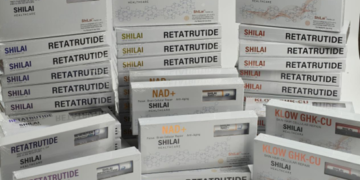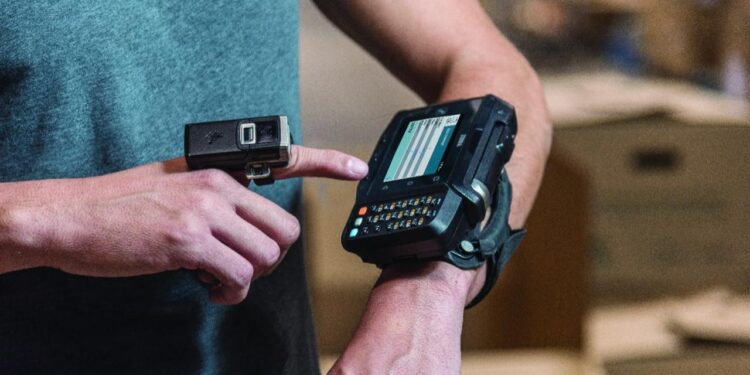To survive and thrive in the chaotic post-pandemic environment, successful companies recognize the need to accurately track all forms of assets, equipment, parts, infrastructure, and *literally* anything else of value. Having this information not only reaps maximum benefit from their capital investments (CapEx), but also allows them to operate at peak performance while getting the maximum benefit from their capital investments (OpEx and continuity of operations).
Data that is captured in the field – warehouses, offices, trucks, and various sites – is some of the most CapEx and OpEx impactful information a company can ever get. It provides a clear, dynamic view into what is actually happening at a location or point of transaction for management, staff, partners, and any connected business system.
Guess who is begging for this data? Pretty much every connected group, because data is knowledge, and knowledge is power. Managers have an urgent need to see a real-time representation of their total assets in motion across networks, warehouses, and departments. According to a recent Global CPO Survey by Deloitte, 65% of financial/procurement leaders said they have “limited or no visibility” beyond their tier one suppliers. It’s not just Finance that needs access to this information – but also Operations, Engineering, Supply Chain, and IT that have limited or no visibility and would benefit greatly by having access to it.
Let that sink in for a bit. A business functioning with major departments flying blind, or partially blind. That’s insanely dangerous in this tumultuous world.
To solve this, some organizations have historically tried to rely on periodic physical audits to get a partial snapshot of where all their “stuff” is. Others have relied on limited purchase documentation stored in their enterprise applications – again a partial snapshot that is almost immediately outdated. The truth is, to have a complete view of your assets, you need to have a rock star-level field data collection system that can provide this same information to a wide array of your other business systems. Key to this is the ability to support:
Asset Tracking: The process of capturing important information on the status and location of assets using Field Data Collection tools to interact with barcodes, RFID tags, and other forms of asset verification.
Site Information Management: The management of actionable information to optimize construction builds, regular maintenance, and retirement/reallocation of a site or field location. This relies on Field Data Collection for harvesting information on both passive and in-movement (transactional) assets.
Warehousing: The maximization of space utilization and equipment investments through coordinating and optimizing material flows (which produce storage and ergonomic strategies). This is all fronted by Field Data Collection tools which collect data and streamlines put-away and pick transactions for every encountered asset.
Inventory Management: The focus on the inter-connected flow of items a company sells or the components it uses to make their goods and offerings is made possible by Field Data Collection. This type of solution seeks the right balance of stock to satisfy customer demand or, in a production environment, supply general manufacturing.
Compliance: The minimization of regulatory compliance risks, as well as reporting costs through visibility & control of all documented assets. This requires having a solid Field Data Collection solution to be the “eyes” of the company.
Contractor and Partner Solutions: Accurate detail about every asset transaction or transfer a vendor, partner, or contractor does at any point in their normal workday. Field Data Collection is required to document that flow, which gives perfect traceability and accountability for all involved.
Business System Integrations and Improvements: The connection (through APIs) to any financial or third-party system to send and receive important actionable data. This data first comes from… you guessed it… Field Data Collection solutions.
Those companies who ultimately surrendered their spreadsheets (and literally, in some cases, pencil and paper) to get firmly into the digital transformation groove are running into a problem. This problem is trying to solve the above list of business disciplines with a wide array of disjointed technologies and partnerships. It gets to be overwhelming to implement when there are too many systems to manage and integrate to get to that single centralized accurate view of your assets.
Zebra and Siteline, a powerhouse partnership from the United States, is simplifying the Field Data Collection model.
Zebra, whose scanning hardware is being used by major brands around the world, serves as the eyes of the partnership. Powered by Zebra’s proprietary Data Capture DNA, their hardware works under tough conditions, with round-the-clock ergonomics and purpose-built form factors. Their ability to scan dirty, damaged barcodes, and survive harsh work conditionsis legendary. Zebra has shown an innate ability to anticipate every possible workplace/field challenge, so companies can scan consistently and accurately, no matter what. They have more than 50 years of field-proven innovation, and hundreds of millions invested in R&D to make sure there are no issues or surprises… but rather just consistent scans.
Siteline App®, the latest product offering from Fulcrum Technologies, whose asset tracking is being used by major brands around the world, serves as the brains of the partnership. Siteline makes it easy to view, report,and share real-time, accurate data with anyone to inform and guide business decisions. From large businesses to small startup companies (even individuals), the software is scalable for any sized business. Their API’s make it easy to create your own smart forms for data collection, reconcile the data, and connect to any financial or third-party systems. This data can be harvested from any digital source, whether it’s using their Mobility app, contractor I/O, audits, orders, and fulfillment, network e-polling or any connected enterprise system (ERP, OSS, BSS, WMS, 3PL, BI, Reporting), you name it.
Every business system, such as financial, planning, ordering, purchasing, warehouse, spares management, etc. have specific sets of needs that Siteline can be tailored to meet. Fulcrum, like Zebra, have decades of experience and support major brands around the world.
This partnership is best suited for any industry with valuable assets that may move during their life. This would include Retail, Warehouse/Distribution, Communications, Healthcare, Manufacturing, Field Ops, Transportation & Logistics, Energy & Utilities, Hospitality, Government, and more.
Data is knowledge, and knowledge is power. You can feel this power for yourself, by discovering more at Zebra.com and Fulcrum.net.




























